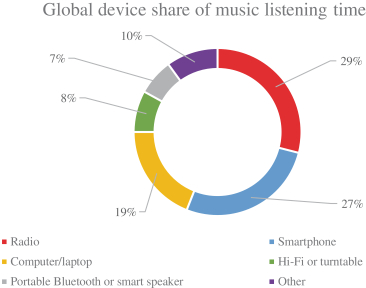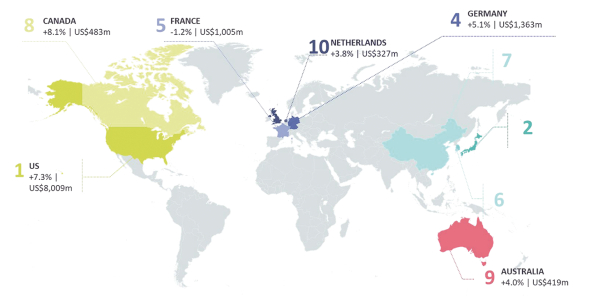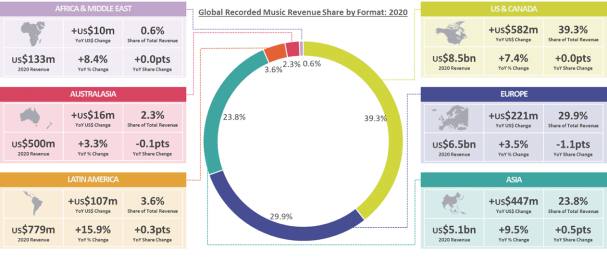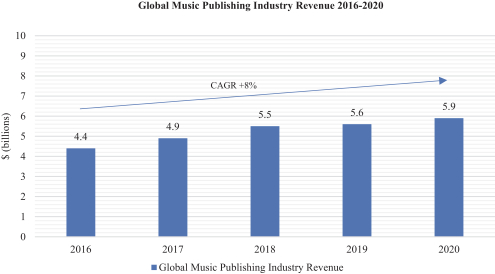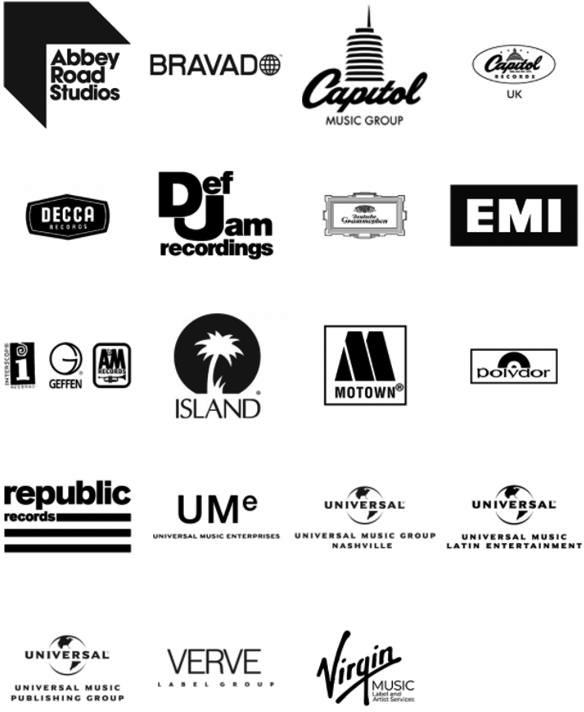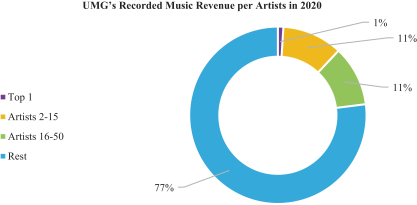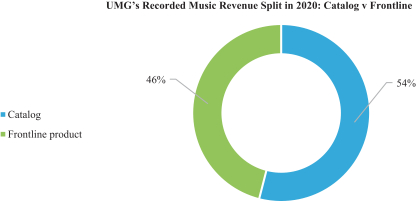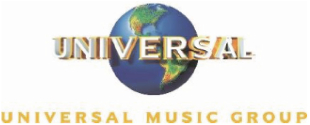traditional retail distribution both in store and online (such as Best Buy, Target, HMV, Media Markt, Fnac), through online physical retailers (such as amazon.com) and directly to customers through UMG’s online websites. UMG’s sale and return policies conform to wholesaler and retailer requirements, applicable laws and regulations, territory and customer-specific negotiations and industry practice. UMG attempts to minimize the return of unsold product by working with retailers to manage inventory and stock-keeping unit counts as well as by monitoring shipments and sell-through data.
UMPG believes that it is one of the world’s largest and fastest-growing major music publishing companies, acquiring and administering rights to musical compositions (as opposed to recordings) and licensing those musical compositions for use in a variety of formats. UMPG licenses musical compositions for use in sound recordings, films, television, advertisements, video games, concerts and in other public performances. It also licenses compositions for use in printed sheet music and song folios. UMPG owns and controls a vast catalog of original music and arrangements and offers this for use in films, television, advertising and new media industries. UMPG is a leader in licensing musical compositions to film/TV studios, major brands and digital service providers for use in their content and products.
UMPG’s global publishing catalog contains close to four million owned and administered titles, including some of the world’s most popular songs from major songwriters and artists such as ABBA, Adele, Axwell & Ingrosso, J Balvin, The Beach Boys, Beastie Boys, The Bee Gees, Irving Berlin, Leonard Bernstein, Justin Bieber, Benny Blanco, Chris Brown, Mariah Carey, Brandi Carlile, Kenny Chesney, Coldplay, DaBaby, Jason Derulo, Neil Diamond, Disclosure, Dua Lipa, Bob Dylan, Billie Eilish, Eminem, Gloria and Emilio Estefan, Florence + the Machine, Future, Selena Gomez, Ariana Grande, Al Green, Josh Groban, Halsey, Jimi Hendrix, H.E.R., Imagine Dragons, Carly Rae Jepsen, Billy Joel, Elton John/Bernie Taupin, Jonas Brothers, Alicia Keys, Kendrick Lamar, Lil Baby, Lil Yachty, Linkin Park, Logic, Demi Lovato, the Mamas & the Papas, Steve Mac, Maroon 5, Dave Matthews, Megan Thee Stallion, Shawn Mendes, Metallica, Miguel, Nicki Minaj, Maren Morris, Mumford & Sons, Pearl Jam, Post Malone, Quavo, Otis Redding, R.E.M., Red Hot Chili Peppers, Rex Orange County, Rosalía, Carly Simon, Britney Spears, Bruce Springsteen, Stax (East Memphis Music), Harry Styles, Taylor Swift, SZA, Shania Twain, Justin Timberlake, U2, Keith Urban, Jack White, and Zedd. UMPG also administers catalogs for the world’s most prominent film and TV studios, including Warner Bros., NBC Universal, Disney, HBO, Dreamworks, MGM, Paramount, Lionsgate, Viacom, and STX.
In 2020, UMPG entered into deals with numerous songwriters and artists ranging from legendary talent to today’s superstars and promising names, such as Taylor Swift, Kendrick Lamar, Megan Thee Stallion, Brandi Carlile, Kenny Chesney, Luke Combs, Bad Bunny, Andrew Lloyd Webber, Van Halen, Dave Cobb, Billy Walsh, Lil Mosey and Rina Sawayama. UMG has also reached a historically significant deal, acquiring the iconic song catalog of Bob Dylan.
UMPG offers a leading royalty platform and administration services to songwriters. It also offers songwriters, UMPG Window, an advanced platform and technology through which songwriters and clients are provided real-time information on earnings, royalty and copyright data. This advanced system reflects UMPG’s longstanding commitment to transparency, integrity and trust. Launched in January 2020, UMPG Window uses the latest in cloud-indexing technology to provide comprehensive views of where, when and how songs are consumed around the world. UMPG Window also features: one-click, no-fee advances; international royalty ‘pipeline’ income views; society registration information, status, and full copyright details on all works; comprehensive Film and TV information for works used and royalties earned; and numerous other powerful tools to help songwriters and clients.
Music publishers generally receive royalties pursuant to licenses concerning various rights, including public performance, digital, mechanical, synchronization, and print, amongst others. In the United States, music publishers collect and administer mechanical royalties, and statutory rates are established pursuant to the US
A-107

